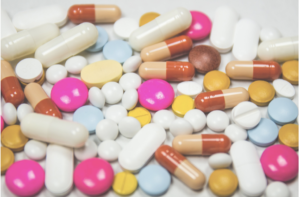
Who knew that heartburn could lead to head and neck cancer? Now stomach cancer too? New research suggests popping certain heartburn drugs like their candy might up your odds of stomach cancer. The risk was proportionate to how long and how often these drugs, called proton pump inhibitors (PPIs), were taken. That risk increased anywhere from two to eight times, study authors said.
Although the relative risk seems high, the absolute risk was small. But it was statistically significant, especially for people infected with Helicobacter pylori, a bacteria linked to stomach cancer, researchers explained.
“While PPIs are one of the most commonly used medications for treating reflux disease as well as dyspepsia, clinicians should exercise caution when prescribing long-term PPIs, even to patients who have H. pylori-eradicated,” said lead researcher Dr. Wai Keung Leung. He is a professor of gastroenterology at the University of Hong Kong. PPIs include commonly used drugs like Prilosec, Nexium, and Prevacid.
Eliminating H. pylori lowers the risk of stomach cancer significantly, Leung noted. But even after the bacteria is treated, many people still develop stomach cancer. However, this study couldn’t prove PPIs cause stomach cancer, only that an association exists. PPIs are generally considered safe.
“The advice to PPI users, particularly those with past H. pylori infection, is to be cautious with the prolonged usage of PPIs,” Leung said. “Doctors should review the indications and needs of long-term PPIs in these patients.”
The small increase in the risk of stomach cancer with PPIs was not enough to prompt one gastrointestinal specialist to abandon their use.
“In my own experience, I have seen medicine evolve. And one thing that I try to keep in mind is, while many studies exist and treatment is evolving, we must tailor treatment on an individual basis,” said Dr. Sherif Andrawes. He is director of endoscopy at Staten Island University Hospital in New York City.
Even with this new study, “there are medical situations in which PPI therapy is necessary and the risk of side effects is







